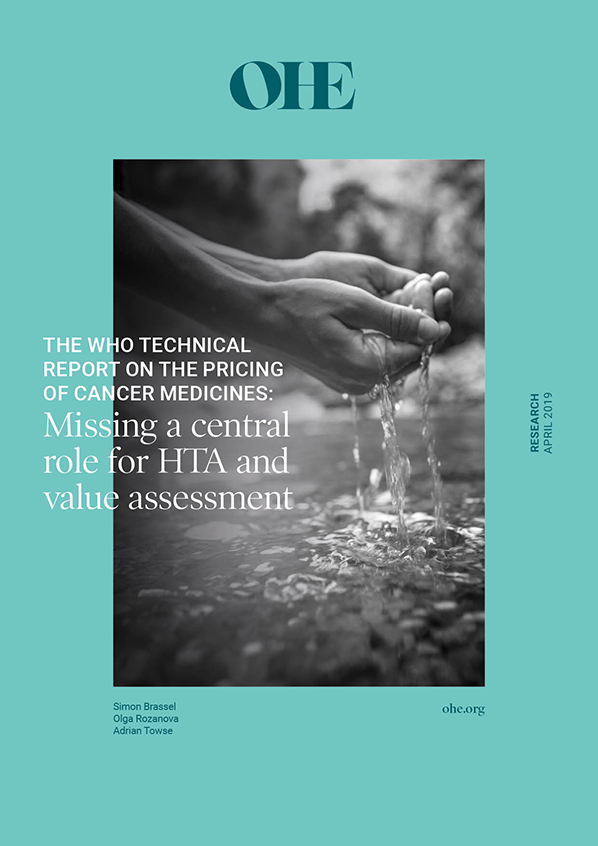The WHO Technical Report: Pricing of cancer medicines and its impacts (“the Report”) was published in order to address requests made in a resolution adopted by…
The WHO Technical Report: Pricing of cancer medicines and its impacts (“the Report”) was published in order to address requests made in a resolution adopted by the 2018 Seventieth World Health Assembly WHA70.12 on Cancer prevention and control in the context of an integrated approach.
The WHO Technical Report: Pricing of cancer medicines and its impacts (“the Report”) was published in order to address requests made in a resolution adopted by the 2018 Seventieth World Health Assembly WHA70.12 on Cancer prevention and control in the context of an integrated approach.
At the end of 2018 the WHO Technical Report: Pricing of cancer medicines and its impacts (“the Report”) was published in order to address requests made in a resolution adopted by the 2018 Seventieth World Health Assembly WHA70.12 on Cancer prevention and control in the context of an integrated approach.
The Report dismisses value assessment and the fundamental role of value assessment in delivering value for money. This is inconsistent with both existing WHA policy on HTA and the reality that more and more payers in WHO Member States are using value assessment analyses to support their purchasing decisions. Secondly, the Report lacks proposals to enable differential pricing and managed entry agreements to happen. Both can increase access while setting the right incentives for future innovation if implemented correctly. Lastly the report calls for price transparency and price caps which are likely to have a negative impact on differential pricing and managed entry agreements, reducing access to treatment for patients and producing less innovation in the future.
Much of the emphasis of the Report is that the R&D “supply side” is not working as the authors would like, but we are not convinced that this is the major challenge. Supply responds to demand and the real challenge is to get demand side reforms that use new treatments efficiently and send the right signals to industry about the new cancer treatments (and associated health gains) that payers want to fund.
The Report fails to promote mechanisms and processes (value assessment and related pricing and purchasing arrangements) that are key to efficient pricing and use of cancer medicines. This is a missed opportunity.
